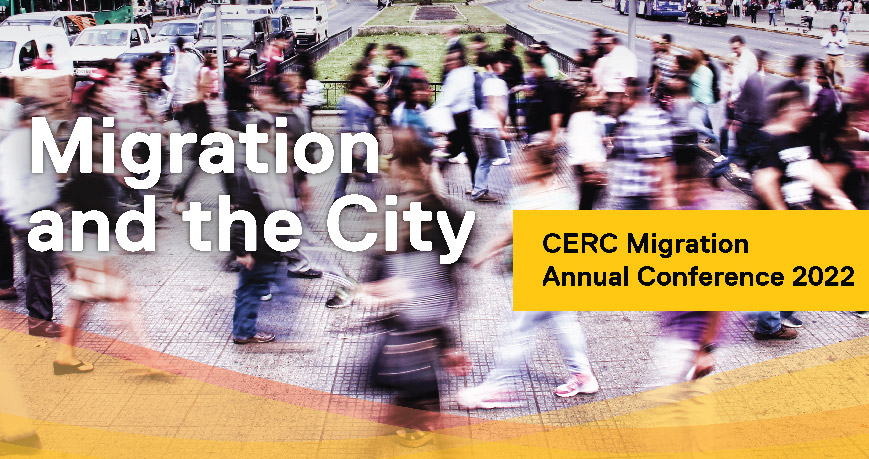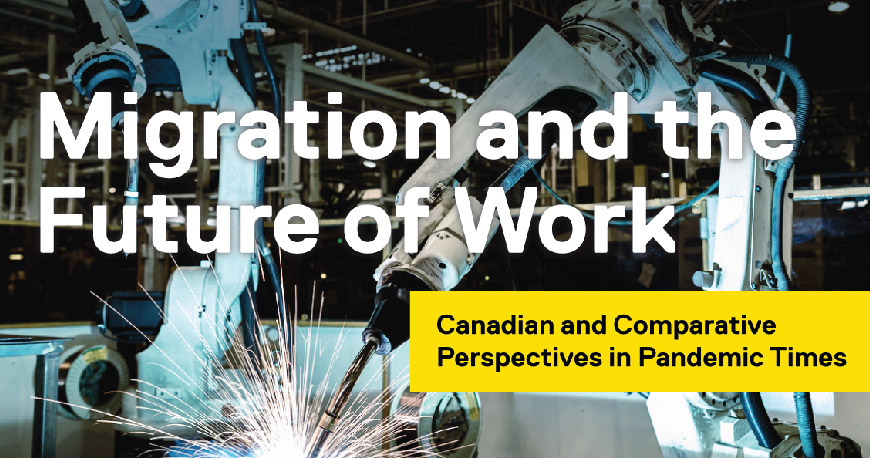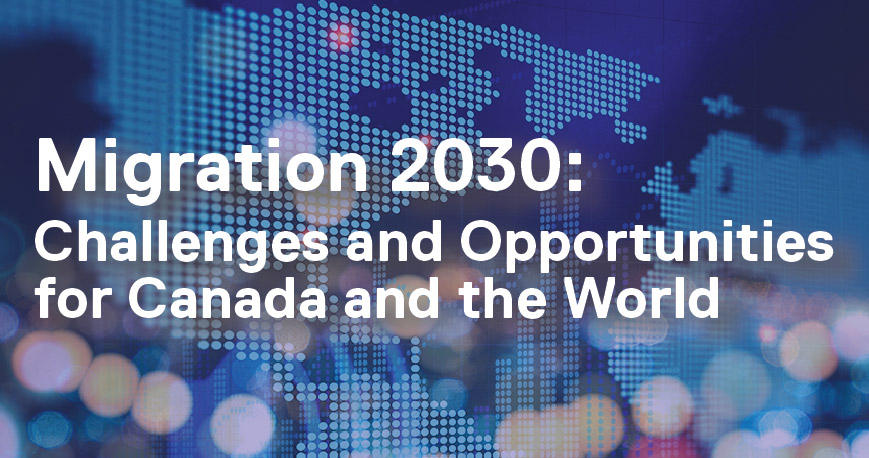Narrative of Migration
May 10-11, 2023 at Toronto Metropolitan University
“We had two full days, touching on many issues from settler colonialism to thinking about the impact of social media to exploring our subject through arts as methodology. The conference reminded me of the importance of comparative perspectives, and also that we need to pay attention to the absent narratives – the silences that may say more than what we hear.” - Anna Triandafyllidou, Canada Excellence Research Chair in Migration and Integration
“There is no doubt, migration is one of the defining issues of our time…The focus on the narratives of migration is powerful. Through stories of migrants, we learn how the system works and how it can work better for everyone concerned. This gathering will help ensure that we have a roadmap to build an equitable and inclusive future for all of us.” - Mohamed Lachemi, President and Vice-chancellor, Toronto Metropolitan University
“I especially appreciated the international focus. Also, the size - that there were no overlapping panels and plenty of time to talk with other attendees.” - Anonymous attendee
Almost 200 individuals participated in the Narratives of Migration conference, with 65% attending in person. The top affiliations of our attendees were: 61% graduate student, 21% post doctorate/research associate and 15% faculty. While the majority of participants were from Canada, attendees also came from Brazil, Germany, Ghana, India, US, UK and 10 other countries. Our speakers also covered a number of world regions, including Canada, Ethiopia, Ghana, Hong Kong, Israel, Morocco, Netherlands, New Zealand, Singapore, Spain, Sweden, U.K. and U.S.
Program Abstracts, PowerPoint Presentations & Video Recordings
Wednesday, May 10
Migration narratives in settler colonial states emerge from transnational dynamics rooted in global histories and contemporary realties that feature, challenge, justify and/or (re)produce complex and shifting hierarchies of membership among and between Indigenous, settler, racialized and so-called migrant members of these societies. In these states, migration narratives can be thought of as coming from above, and they often attempt to legitimize or conceal these states’ origins and contemporary relations to Indigenous peoples. These ostensible nations of immigrants also simultaneously express xenophilic and xenophobic discourses and policies that offer forms of inclusion for some migrants while excluding and disciplining others. While some settler narratives, such as those of multiculturalism, often celebrate immigrants and their contributions, contemporary narratives also frequently feature racialized categories, such as the asylum seeker or refugee, the foreign worker, the economic migrant or the security threat. Such labels and narratives materially contribute to the levels of opportunity, social inclusion and political or economic freedom (or unfreedom) experienced by those to whom they are applied. This panel will consider the contemporary state of both cross-cutting and country-specific migration narratives in these states.
Short audiovisual clips created by immigrants to narrate their own stories offer wide audiences unmediated encounters with immigrants’ voices, their points of view and their interpretations of their lives. This situates immigrants as subjects, highlighting their human dignity, and each individual story remains a unique part of a mosaic that does not disappear in the overall pattern. Immigrants maintain their singularity, resisting generalizations that can lead to stereotyping. Nevertheless, the usage of film entails pitfalls inherent to the media. For example, when situated as the clips’ protagonists, immigrants are distinguished via convention from the crowd and imbued with a hero’s aura. This solicits identification with them, while others remain blurred. Additionally, immigration-focused short films, like any audiovisual product, are inevitably manipulative yet do not warn their viewers of such manipulation. Audiences, especially young ones, are not well versed in critical thinking. This panel considers how a creative producer could construct messages of immigrants and immigration that are humanistic, pluralistic, respectful, reliable and thought provoking while also encouraging audiences to embrace critical lenses – and use them.
Contrary to dominant Western media frames and political narratives, a larger proportion of global migration takes place within the Global South and between low- and middle-income countries than from the South to the North. South-South migration plays a crucial role in global remittance flows and relationships between migration and development and other social processes as well as in the political and economic status of emerging regional powers. Countries in the Global South − particularly those emerging as regional powers − adopt their own narratives to make sense of both emigration and immigration, sometimes resisting the dominant perspectives of countries in the Global North and other times acquiescing to and adopting those views. This panel will decentre common narratives framing Global South states as places of origin or transit to the Global North and explore migration-related narratives in emerging powers through cross-regional perspectives from Latin America, the Middle East, North Africa and Eurasia.
Thursday, May 11
Migration has been an essential feature of many small city-states that have had to rely on migrants to build and sustain their fast-paced development agendas. However, the integration of migrants in city-states can be unequal and restrictive depending on their status and skill levels. Several small city-states have relied on forms of circular labour migration to fill jobs in sectors such as construction and domestic labour while only allowing pathways to permanent residency and citizenship to select groups. These policy choices influence migrants’ narratives and lived experiences related to temporariness, mobility, sense of belonging and access to rights. Challenges and complexities related to such policy choices were especially evident during the COVID-19 pandemic and its various lockdowns. This session will highlight the narratives of migration in small city-states in the Persian Gulf region and in Southeast and East Asia. It discusses how narratives influence migration polices in powerful ways by shaping how challenges and solutions are decided in city-states and how migration influences narratives in return.
Historically, migration has been fundamental to the subsistence and livelihoods of people all over Africa. However, there are differing perspectives on what the root causes and consequences of migration are in regional contexts. Additionally, migration governance objectives and goals from the Global North – particularly from the European Union − have dominated and overshadowed regional migration narratives and shaped how migrants and migration in these contexts are perceived as well as the related policy, legal and political approaches. A large amount of research focuses on migration narratives from these regions to the Global North, greatly limiting our understanding of the complexity of regional migrations in Africa. To decentre the knowledge of migration narratives, this session looks at West and East Africa to unpack and examine migration narratives from above and below for a better understanding of the key narratives shaping debate and policy, the actors and shapers of different narratives and the consequences of narratives that shape migration governance within these regional contexts.





